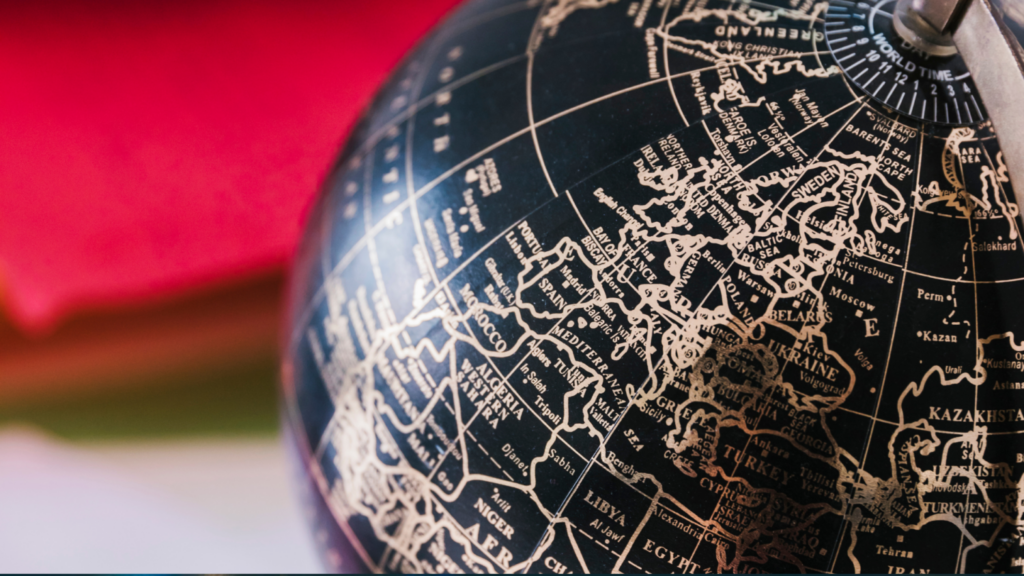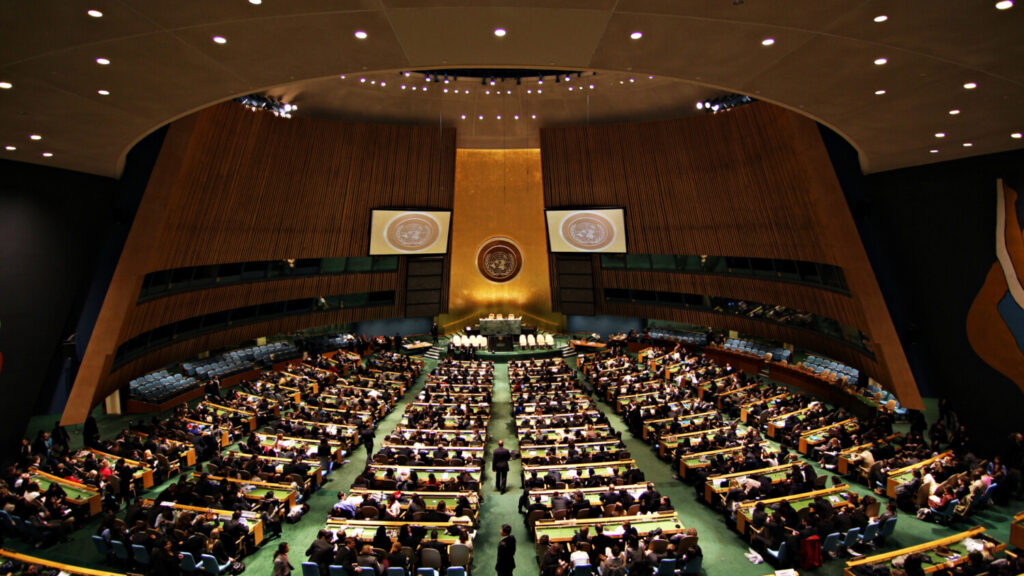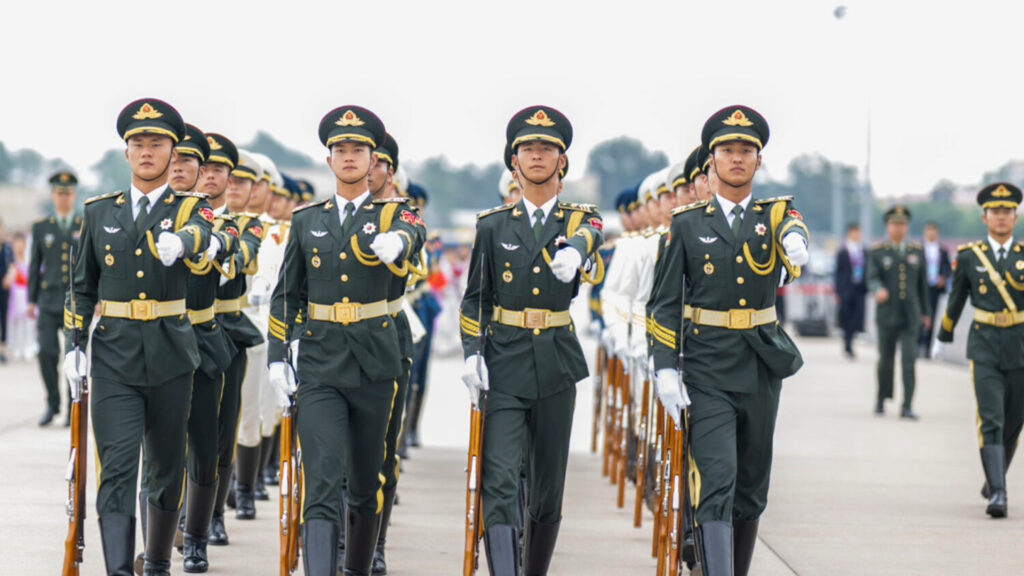Tangible Change or Online Cult? The Case of Ibrahim Traoré and Burkina Faso
In the past few weeks Burkina Faso’s incumbent ruler, Ibrahim Traoré, has created somewhat of a firestorm online, as it was reported he made all education – from nursery to university – free for the citizens of Burkina Faso (Asabor, 2025). This has followed the general trend since the military coup conducted by Traoré in 2022, as an ‘online cult’ has been generated around the leader, glorifying his anti-imperial, anti-French leadership strategy (Bojang Jr., 2025). However, in spite of the massive number of posts online venerating the decision, there appears to be some confusion around the truth of the actual claim. Many posts have been found to have used AI-generated images and manipulated audio (Bojang Jr., 2025) in their claims, as well as one post claiming to display a pro-junta, anti-colonial demonstration in the country’s capital Ouagadougou. In fact, these posts use images of an anti-corruption demonstration in Belgrade, Serbia (Uthman, 2025).
When analysed further, various investigative pieces in African papers have found no evidence of the government itself announcing the education decision at all (Bekoe, 2025), with a piece on Cameroonian site Le Bled Parle last month also finding there to be completely falsified claims that Traoré had introduced free maternity services for pregnant women – a policy that had actually been in place since 2016 (Cintia, 2025). This clearly shows mass misinformation spreading surrounding the leader. However, there is no doubt that the Burkinabé leader has enacted sweeping changes in the country, and enjoys popular support from many young Africans across the Sahel and beyond (Eizenga, 2025). This piece analyses the true level of change brought about by Captain Traoré, and discerns the truth amongst the exaggeration.
Economic Independence
Amongst Traoré’s most praised strategies is his pursuit of economic independence for Burkina Faso. This includes celebration of his ‘clearing of external debts’ in a multitude of small online articles (Panashe, 2024; Clarke, 2025; Patriotic Front, 2025). Again though, this claim has come under extreme scrutiny, as both Reuters (Reuters Fact Check, 2025) and Voice of America (Mwambia, 2025) fact-checkers have found it to be falsified. The captain also seems determined to abandon the CFA Franc (Bavier & Balima, 2024; Oluwole, 2024; Ferdjani, 2024), with the limitations of the colonial currency outweighing the expediency of keeping it (Mbihbiih, 2023). The flaws are many and obvious: France still holds a de facto veto over the boards of the existing central banks in the area and the Franc is still pinned to the Euro; the currency increases potential for poverty and unemployment (LSE, 2017); and historically the notes have only ever been printed in the town of Chamalières, France, by the Banque de France (Bakala, 2024). Though a spate of articles in Turkish and African outlets late last year covered the opening of Burkina Faso’s first independent state bank (Bonny, 2024; TRT Afrika, 2024; Africa Briefing, 2024), as announced by Traoré himself on X (formerly known as Twitter), there would appear to have been very little enacted beyond this announcement.
More tangible evidence is available when discussing his process of gold mine nationalisation in the country. The gold sector – 12% of total GDP (Coulibaly, 2024) – is essential for the survival of the regime, so one can understand the urge to direct the profits of state resources to state coffers. Gold has historically taken up a massive proportion of the export market for Burkina Faso, with it easily being amongst the top ten worldwide for highest share of gold in their export portfolios.
As shown, even when compared to the countries most reliant on gold exports globally, Burkina Faso stands out (along with its Sahel neighbour Mali). The prominence of mine nationalisation in Traoré’s rhetoric is clearly reasoned then, and deeply tied to the country’s economic sovereignty. These are promises too that he seems to have followed through on, with multiple sources confirming the purchase of the Boungou and Wahgnion gold mines by the Burkinabe state, including previous owners, London-based company Endeavour, and the Financial Times (Endeavour Mining, 2024; Zadeh, 2025; Orinoco Tribune, 2024; Dempsey & Adeoye, 2024). However, the entire story of resources in Burkina Faso is tied up in more complex geopolitical strategy, as Russian group Nordgold have only last month been granted a new mining license by the regime (Reuters, 2025). All foreign firms now are required to give the state a 15% stake in new operations though, as well as train up the Burkinabe people (Chothia, 2025). In terms of pure resource sovereignty, Traoré does therefore seem to be aiming to deliver, and succeeding in doing so.
Tackling Terrorism
The coup launched by Traoré in 2022 was largely premised on the ever-increasing jihadist violence in the country, with al-Qaeda and Islamic State linked groups gaining control of a vast swathe of territory in the last ten years (AFP, 2023). The Islamic State of the Greater Sahara (ISGS) itself first surfaced in Burkina Faso in 2016 (Center for Preventive Action, 2014). In spite of his claim that he would deal with the insurgency issue ‘within two or three months’ (Chibelushi & Njie, 2024), civilian deaths caused by Jihadist attacks sharply increased following his military takeover (Booty, 2022). Independent statistical assessment has found it in fact to become the country worst affected by terrorism globally since 2020.
Since the 2022 coup, the issue has only become worse, with the Institute for Economics and Peace assessing it to be worse than any other country when considering the impact of terrorism. In 2023 alone up to 8000 people were killed in the ongoing violence, with 2.6 million people currently displaced across Burkina Faso, Mali and Niger (Aina, 2025). This also affects Traoré’s economic vision, as foreign investment has been hampered by the violence since the insurgency’s outbreak a decade ago (Kambou & Khariss, 2020) and an average of just 0.0047 tourists per resident ranks the country 193rd in the world (Normile, 2023). His complete rejection of local mediation efforts with the jihadists in pursuit of total victory has certainly put far more civilian lives at risk (Kleinfeld, 2024). In this field the regime seems to have been far less successful, perhaps contributing to the relative lack of online disinformation around army success and advances.
Conclusion
Traoré has a lot of work to do in some areas, primarily that of quelling the violent jihadist opposition still rampant across the country. One also can find that in spite of the extraordinary claims of anti-colonial, economically sovereign policy and strategies brought in by the administration, much of this is often blown out of proportion by both media outlets and social media users. There is little doubt of the project he is attempting to sow though, as the regime rarely attempts to downplay the claims made in their name: the aura has been cultivated to match the vision. This certainly seems to be working in the regime’s favour.
As Afrobarometer have found, support for military rule has only increased in recent times, with a surge in support since Traoré’s takeover. His popularity amongst the African people is undoubtable, as well as his turn from colonial European alignment toward Russia (Yarga, 2024; The New Arab, 2025). Yet even amongst analyses of this turn there is potential misinformation: Afrobarometer themselves found that support for the army was largely on the basis of an anti-terrorism focus (Ramde, 2023), one that has so far failed; and some have used his ‘rejection’ of IMF and World Bank loans as evidence of an Eastward turn (Aikins, 2025), when others contend this ‘rejection’ is a falsehood (Cooper, 2025; Reuters, 2023; IMF, 2024). When discerning his true popularity one needs to delve through masses of independent propaganda to get to the truth and facts of the regime’s successes and failures. What is clear is that Traoré certainly has a specific focus and direction, aided by the certainty granted from a rule recently extended to 2029 (Nunoo, 2024). Caution must be exercised when interpreting Traoré’s rhetoric of monumentality that frequently surrounds his every decision.
Bibliography
Aikins, E. R., ‘In Burkina Faso, Traoré’s legacy could extend beyond popularity and promises’, Institute for Security Studies, 24 April 2025
Aina, F., ‘Why Burkina Faso, Mali and Niger’s new plan to tackle extremist violence is likely to fail’, The Conversation, 6 February 2025
Africa Briefing, ‘Burkina Faso opens first state bank under junta leadership’, Africa Briefing, 2 August 2024
Agence France Presse, ‘Burkina Army Chief Vows To Press Offensive Against Jihadists’, Barrons, 6 April 2023
Asabor, I., ‘If Burkina Faso Can Offer Scholarships From Primary To University, What Is Nigeria’s Excuse?’, Modern Ghana, 5 May 2025
Bakala, T. A., ‘The Franc CFA and the Bank of Central African States: For or against the Status Quo?’, Open Journal of Social Sciences, 12 (3), 340-359
Bavier J., Balima B., ‘For West African juntas, CFA franc pits sovereignty against expediency’, Reuters, 13 February 2024
Bekoe, N. K., ‘False, Ibrahim Traoré has not made education free from primary to university level’, Dubawa, 26 April 2025
Bojang Jr., Sheriff, ‘Ibrahim Traoré: Inside the digital cult glorifying Burkina Faso’s military leader’, The Africa Report, 7 May 2025
Bonny, S. A., ‘Burkina Faso’s junta chief unveils 1st state bank, aiming for economic sovereignty’, Anadolu Ajansı, 2 August 2024
Booty, N., ‘Mali and Burkina Faso: Did the coups halt jihadist attacks?’, BBC News, 30 July 2022
Center for Preventive Action, ‘Violent Extremism in the Sahel’, Council on Foreign Relations, 23 October 2024
Chibelushi, W., Njie, P., ‘Jihadists step up attacks on Burkina Faso civilians – rights group’, BBC News, 18 September 2024
Chothia, F., ‘Why Burkina Faso’s junta leader has captured hearts and minds around the world’, BBC News, 12 May 2025
Cintia, A., ‘Fact checking : Ibrahim Traoré did not announce free maternity services for pregnant women’, Le Bled Parle, 7 April 2025
Clarke, S., ‘How President Ibrahim Traoré is Reshaping Burkina Faso’s Economy’, MEFeater, 4 January 2025
Cooper, P. E., ‘False! Burkina Faso’s President Ibrahim Traoré has not rejected loans from the World Bank’, Dubawa, 25 March 2025
Coulibaly, N., ‘Burkina Faso: Endeavour and Iamgold in Traoré’s sights’, The Africa Report, 6 November 2024
Dempsey, H., Adeoye, A., ‘Burkina Faso nationalises two gold mines mired in legal dispute’ Financial Times, 27 August 2024
Eizenga, D., ‘Burkina Faso’s Ibrahim Traoré is making waves in west Africa. Who is he?’, The Conversation, 20 February 2025
Endeavour Mining, ‘Endeavour Announces Settlement Agreement With Lilium’, 27 August 2024, available at https://www.endeavourmining.com/news-and-media/news/endeavour-announces-settlement-agreement-lilium/ [accessed 11/05/25]
Ferdjani, H., ‘Debate on ditching CFA begins as Burkina Faso, Mali, Niger forge new path’, Al Jazeera, 23 February 2024
International Monetary Fund, ‘Burkina Faso: IMF Executive Board Completes First Review under Extended Credit Facility Arrangement and Concludes 2024 Article IV Consultation’, Press Release No. 24/219, 14 June 2024
Kambou, P., & Khariss, M. (2020) , ‘Effect of terrorism on foreign direct investment in Burkina Faso’, International Journal of Accounting, Finance, Auditing, Management and Economics, 1(3), 200-211
Kleinfeld, P. (ed.) ‘How Burkina Faso’s military junta outlawed local peace talks with jihadists’, The New Humanitarian, 18 November 2024 [original author anonymous]
London School of Economics, ‘The CFA Franc: French Monetary Imperialism in Africa’, LSE Blog, 12 July 2017
Mbihbiih, N. R., ‘How CFA currency fuels anti-French sentiments in Africa’, TRT Afrika, 26 May 2023
Mwambia, P., ‘Burkina Faso junta has not paid off country’s debt, doesn’t control resources’, Voice of America, 22 January 2025
Normile, J., ‘Burkina Faso: Conflict and Development’, Ramerican Political Science Review, 8, 76-94
Nunoo, F., ‘Burkina Faso extends military rule by five years’, BBC News, 26 May 2024
Oluwole, V., ‘Burkina Faso, Mali and Niger are considering ditching CFA franc’, Business Insider Africa, 15 February 2024
Orinoco Tribune, ‘Burkina Faso Nationalizes UK Goldmines’, Orinoco Tribune, 10 September 2024
Panashe, T. B., Burkina Faso’s Bold Economic Transformation Under Captain Ibrahim Traoré’, LoveworldSAT, available at https://loveworldsat.org/burkina-fasos-bold-economic-transformation-under-captain-ibrahim-traore/ [accessed 11/05/25]
Patriotic Front, ‘BURKINA FASO PAYS BACK HER EXTERNAL DEBT’, 16 January 2025, available at https://www.facebook.com/patrioticfrontzambia/posts/burkina-faso-pays-back-her-external-debtin-a-landmark-decision-reshaping-burkina/943006517938182/ [accessed 11/05/25]
Ramde, S. F., ‘AD692: Les Burkinabè font confiance à l’armée mais veulent qu’elle se consacre uniquement au terrorisme’, Afrobarometer, 24 August 2023
Reuters, ‘Burkina Faso grants mining lease to Russia’s Nordgold for gold project’, Reuters, 25 April 2025
Reuters, ‘Burkina Faso wins IMF approval for $302 mln, four-year loan’, Reuters, 21 September 2023
Reuters Fact Check, ‘Fact Check: Burkina Faso has external debt and there’s no evidence it was paid off in March’, Reuters, 16 April 2025
The New Arab, ‘Burkina Faso leader Ibrahim Traore seeks stronger military ties with Russia’, The New Arab, 10 May 2025
TRT Afrika, ‘Burkina Faso’s Traore unveils country’s first state bank’, TRT Afrika, 2 August 2024
Uthman, S., ‘Serbian anti-graft protest misrepresented as anti-West demonstration in Burkina Faso’, AFP Nigeria, 8 May 2025
Yarga, J., ‘‘Russia’s African lab’: How Putin won over Burkina Faso after French adieu’, Al Jazeera, 15 March 2024
Zadeh, J., ‘Burkina Faso to Nationalise More Industrial Mines in Strategic Shift’, Discovery Alert, 29 April 2025



